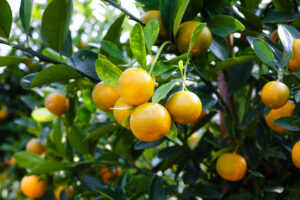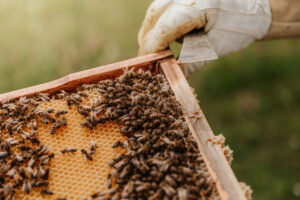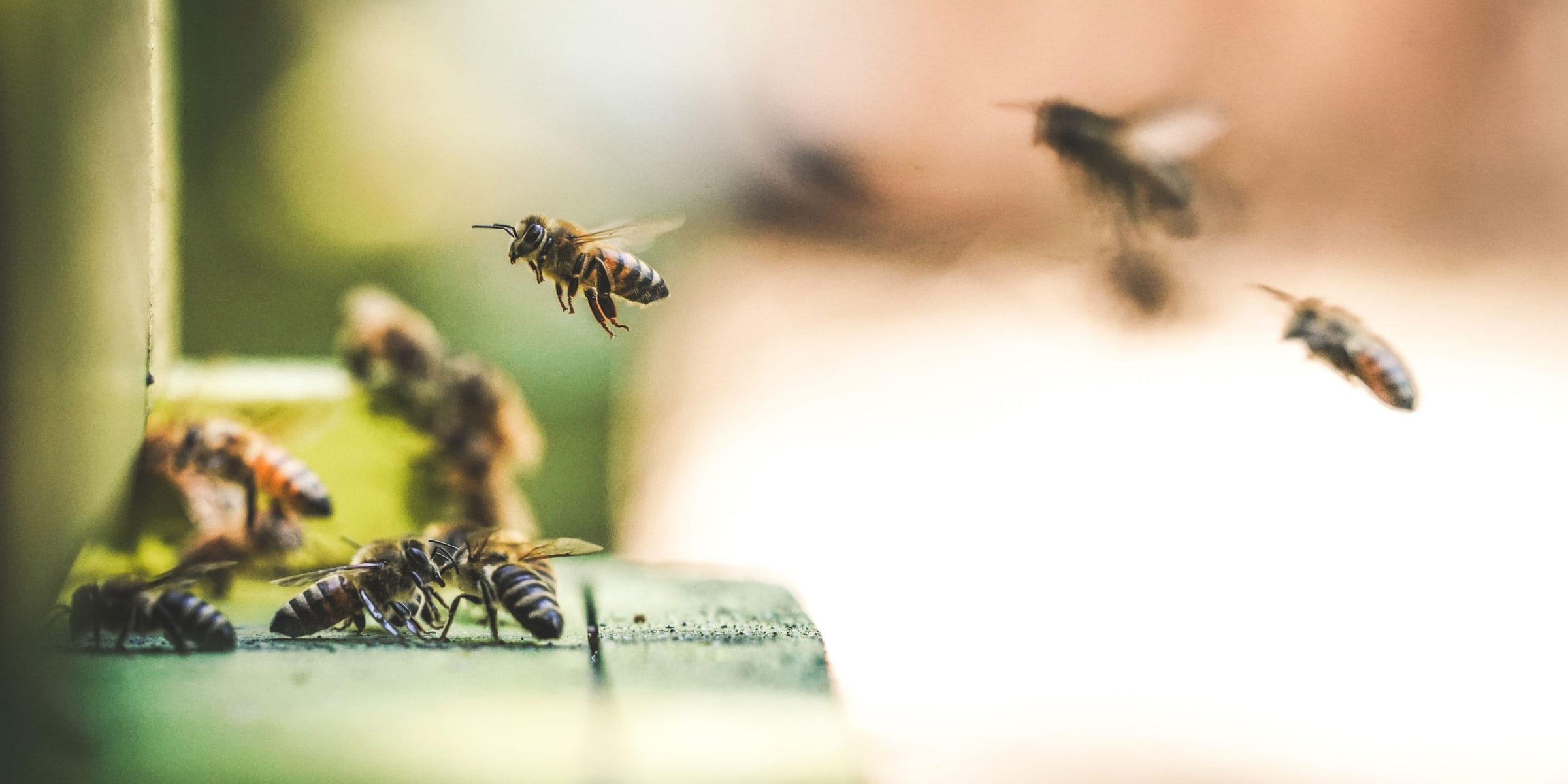
Florida has an enormous agriculture industry that relies on many things—dedicated workers, favorable weather, and reliable transportation. However, one tiny but crucial upholder of of our agri-economy often gets overlooked: the honeybee. And as you may have heard, honeybees are having a tough time fighting off threats from invasive species, food-source die-offs, disease, and colony collapse. What bodes ill for honeybees bodes ill for Florida’s economy. Luckily, Florida is seeing a resurgence in beekeeping. Both professional and amateur beekeepers (or apiarists) are doing their part to help honeybees, and by extension Florida’s agriculture industry, thrive. Here’s why beekeeping in Florida is so important and how the local UF/IFAS Extension can help you start your own apiary right in your backyard.
Why Beekeeping?
 Bees are integral to Florida’s economy. To put it bluntly, without bees to pollinate crops, our agricultural industry would collapse. Our big cash crops like citrus fruit, soybeans, and avocados, all need pollinators to help them grow. A total of $29 billion in Florida crops rely on the work of honeybees, and Florida-sourced honey makes up another $25 million of our state’s agricultural industry. A collapse of the honeybee population would be devastating to our economy as well as our supply of healthy veggies for our dinner plates. Bees also pollinate plants that do not directly impact Florida’s financial health but are still crucial to our environment and to keeping invasive species in check. Beekeepers are able to give bees protection and care they would not otherwise find in the wild, making our fuzzy little buddies better able to do the hard work we need them to do to support our economy.
Bees are integral to Florida’s economy. To put it bluntly, without bees to pollinate crops, our agricultural industry would collapse. Our big cash crops like citrus fruit, soybeans, and avocados, all need pollinators to help them grow. A total of $29 billion in Florida crops rely on the work of honeybees, and Florida-sourced honey makes up another $25 million of our state’s agricultural industry. A collapse of the honeybee population would be devastating to our economy as well as our supply of healthy veggies for our dinner plates. Bees also pollinate plants that do not directly impact Florida’s financial health but are still crucial to our environment and to keeping invasive species in check. Beekeepers are able to give bees protection and care they would not otherwise find in the wild, making our fuzzy little buddies better able to do the hard work we need them to do to support our economy.Becoming a Beekeeper
 Floridians who wish to become beekeepers must register with the Plant Industry division of the Florida Department of Agriculture and renew their registration each year as well as submit to routine hive inspections to check for potential issues such as foulbrood and incursions of African-derived bees. The regulations are good to know, but how do you actually do the work of beekeeping? Luckily for Central Florida residents, the UF/IFAS Extension can teach you everything you need to know about becoming an expert apiarist. UF’s Honey Bee Research and Extension Lab, headed by Gahan Endowed Professor of Entomology Dr. Jamie Ellis, has recently created a remote-learning program to help anyone regardless of skill level become master beekeepers. The program consists of three levels: Apprentice, Advanced, and Master. There are no prior experience or education requirements, although students are required to begin keeping bees to advance through the levels of the program. Those who complete the program will learn about bee biology, hive management, pest control, honey-judging, and a variety of other subjects that will prepare students to become professional beekeepers. More about the program can be found here, as well as info on the specific level requirements. Apprentice and Advanced levels are currently offered online.
Floridians who wish to become beekeepers must register with the Plant Industry division of the Florida Department of Agriculture and renew their registration each year as well as submit to routine hive inspections to check for potential issues such as foulbrood and incursions of African-derived bees. The regulations are good to know, but how do you actually do the work of beekeeping? Luckily for Central Florida residents, the UF/IFAS Extension can teach you everything you need to know about becoming an expert apiarist. UF’s Honey Bee Research and Extension Lab, headed by Gahan Endowed Professor of Entomology Dr. Jamie Ellis, has recently created a remote-learning program to help anyone regardless of skill level become master beekeepers. The program consists of three levels: Apprentice, Advanced, and Master. There are no prior experience or education requirements, although students are required to begin keeping bees to advance through the levels of the program. Those who complete the program will learn about bee biology, hive management, pest control, honey-judging, and a variety of other subjects that will prepare students to become professional beekeepers. More about the program can be found here, as well as info on the specific level requirements. Apprentice and Advanced levels are currently offered online.

If you enjoyed this story about the benefits of beekeeping in Central Florida, be sure to check out these past stories about gardening and hobby farming: 5 Beneficial Central Florida Bugs That Keep Your Garden Pest-Free, Heat Resistant and Beautiful | 6 Native Florida Plants for Gardens and Landscaping, and What You Need to Know Before Buying a Hobby Farm in Ocala.
Want to learn more about beekeeping in Central Florida? Our Showcase team (which includes beekeepers!) is here to answer your questions and help point you in the right direction to start your journey as an apiarist. Contact us—we’d love to help you get started!